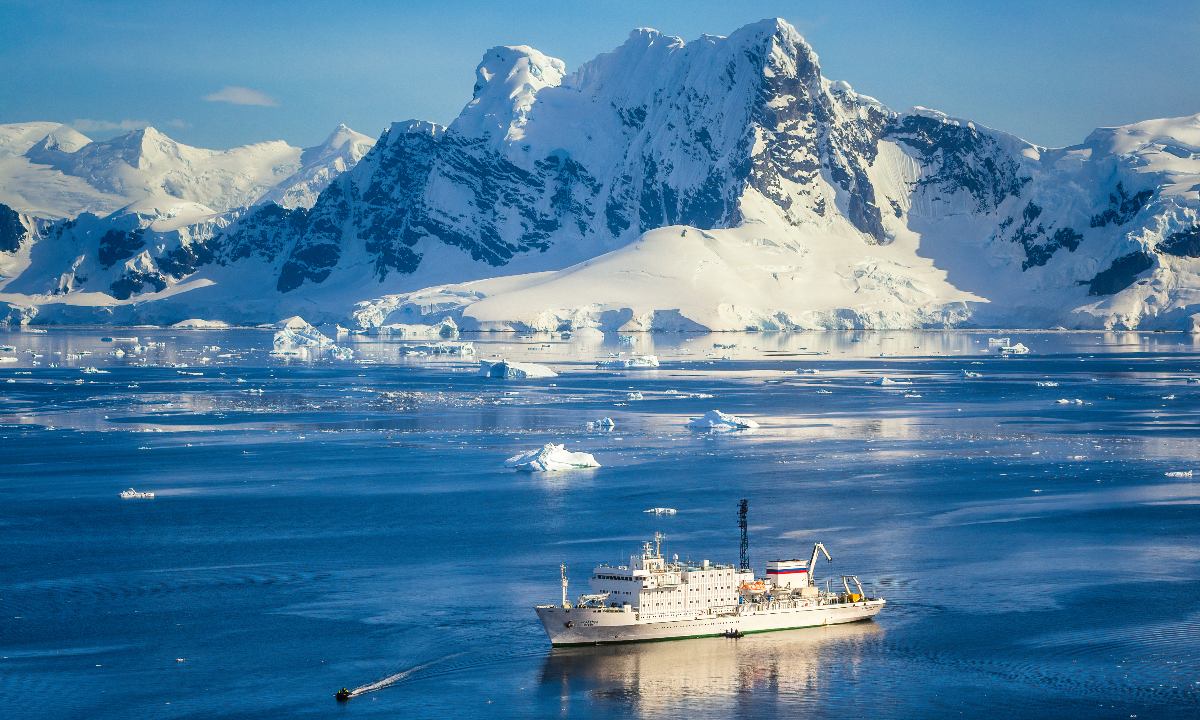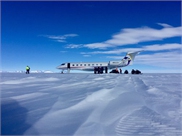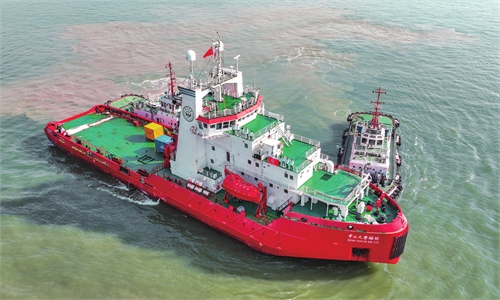Scientific expedition and travel to Antarctica priced at 100,000 yuan per person thrives among Chinese travelers

Antarctica Photo: VCG
A travel product of scientific expedition and travel to Antarctica, priced at 100,000 yuan ($13,798) per person, has become popular among Chinese tourists in recent days. An environmentalist that focuses on the protection of polar environment expects more people can be aware of the significance of polar protection through such activities.
The project organized by the Chinese National Geography magazine with its earliest journey scheduled to set out in February next year, was sold out as soon as it hit the market. The next activity will take part in November next year whereas the quota is already nearly full.
According to an employee from the magazine, the Antarctica exploration and travel project has been organized by the magazine for 25 years but has become a thriving project in recent years. It used to be a form of niche tourism marketed to a small range of population, but has become popular among a wider range of consumers in recent years, according to Ziniu News.
According to the information of the tourism product, the 17-day travel to Antarctic Peninsula is priced at 99,800 yuan per person. There are five types of suites for travelers to choose with the most expensive suites priced at 159,800 yuan per person.
An employee of the magazine noted that tourists aged between 8 and 70 years old are acceptable. Those who are aged 70 or above have to present their medical certificate to prove their health condition is suitable for the journey.
According to the employee, there are different routes to Antarctica. Sometimes they cross the Antarctic Peninsula while sometimes they cross the Antarctic Circle. They will also take a cruise to the island and explore the Antarctic continent up close.
According to media reports, tourism forms involving expeditions to polar regions, deserts, and other extreme environments have become increasingly popular in recent years. Some tourists said that these travels are thrilling yet rewarding. Others noted that witnessing the melting of glaciers that have existed for millions of years in Antarctica due to rising temperatures is a shocking experience. Consequently, they unconsciously impose self-restraints in terms of environmental conservation, feeling that such travels have profound educational significance.
Statistics from the International Association of Antarctica Tour Operators (IAATO) show that China is the second-largest source of tourists for Antarctic landings. Dating back to the 2017-2018 Antarctic tourism season, the number of Chinese tourists reached 8,273, accounting for 16 percent of the global total, second only to the US. In the 2022-2023 Antarctic tourism season, the number of Chinese tourists reached 1,464, and it is expected that in the 2023-2024 Antarctic tourism season, Chinese tourists will recover to 80 percent of the pre-pandemic levels.
Hu Jiaojiao, an environmentalist who focuses on polar protection told the Global Times on Thursday that the prosperity of polar tourism is expected to arouse people’s protective awareness of the polar regions.
Hu went on an expedition to Antarctica last year and observed more and more severe convective weather and the collapse of the ice shelf in the Antarctica. The changes in the climate in the Antarctica not only endangers the Antarctic animals but also poses a threat to human beings.
According to Hu, in the past, it only snowed in the Antarctica but it rains there in recent years. The changes in the weather phenomenon are fatal to the creatures in the Antarctica such as penguins. When baby penguins are still covered in fluff, the rain can cause loss of temperature and eventually death.
Meanwhile, the melting of Antarctica’s ice shelves can cause the rise of sea levels as well as lead to unbalanced atmospheric circulation on the planet, Hu said.
According to Hu, the polar regions are crucial for the entire climate on Earth because the stability of the climate system relies on the exchanges between warm and cold air. The polar regions, especially Antarctica, serve as a cold air generator for the Earth. If the effectiveness of this cold air generator diminishes, it can lead to more frequent extreme weather conditions, making the hot areas much hotter and the cold areas even colder.
Hu expects that such expedition and travel activities to Antarctica can arouse people’s awareness of the protection of the environment there.
Scientists from the European Space Agency said in October that around 40 percent of Antarctica’s ice shelves have significantly shrunk over the last 25 years, noting the losses went beyond the ice shelves’ normal fluctuations and added to evidence of how human-caused climate change is affecting Antarctica.


